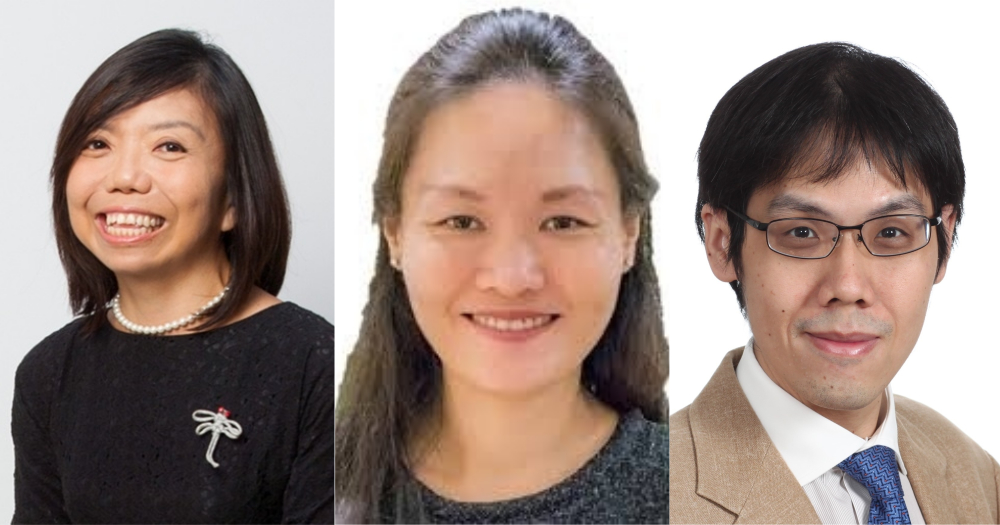Three Singaporean Nominated Members of Parliament (NMPs) have spoken out in a statement regarding the upcoming online falsehoods legislation currently tabled in Parliament.
They expressed their concern that its current wording is broad enough to be vulnerable to abuse, and formally proposed amendments to it.
Far-reaching powers over online communication
NMPs Anthea Ong, Irene Quay and Walter Theseira shared a joint statement with Mothership on Tuesday night, saying they do agree with the need for legislation against deliberate online falsehoods.
However, like academics and various others who have spoken up so far, are concerned by its current wide-reaching phrasing.
"But because online falsehoods can be so harmful, and because so many play a role in creating or transmitting such falsehoods, the Bill is complex and grants the Government far-reaching powers over online communication to fight falsehoods. This has created significant concern...
We share these concerns, as such tools could be used by the Executive and future governments to suppress or chill debate and expression for political purposes. The question is: how do we mitigate such concerns, while ensuring that government has the ability to deal with the full range of threats posed by deliberate online falsehoods?"
NMPs: Protection needed to be worded in legislation to "codify" assurances from government in how it will apply the law
The NMPs' statement and proposals come after "significant" consideration and consultations they conducted with "stakeholders" over the past three weeks.
They are requesting to add:
(1) a clause that sets out key principles (“Principles of the Act”) that guide the exercise of powers under the Act including codifying the aim that the Act is targeted at statements that are materially false and not opinions, comments, critiques, satire, parody, generalisations or statements of experiences;
(2) requirements that any Directions issued are publicly justified;
(3) requirements that the appeals process is expedited; and
(4) the creation of an independent Council (“ICOF”) to monitor online falsehoods and provide routine oversight on the use of executive powers under the Act, and whose members shall be appointed by a Select Committee of Parliament.
Why aren't they waiting till the Second Reading debate to propose these amendments? They gave three reasons:
1) Any government commitment regarding how it plans to apply the law won't bind a future government unless it's put into the wording of the legislation.
The NMPs said in their statement that "the text of the Bill takes precedence over the debate or policy statements if there is any conflict" between what is written and how it is applied in practice.
"We therefore believe improving the text of the Bill is the best way to address these concerns."
They added that the lack of assurances that limit how the legislation's powers can be used, coupled with broadly-worded definitions for falsehoods and "public interest" were particularly disconcerting:
"We are concerned that these broadly worded clauses give the Executive considerable discretion to take action against online communications, without protection in the primary legislation that codifies the assurances given by the Government in explaining the Bill to the public."
2) Parliament has final authority to approve laws proposed by the government, and the process should consider amendments to them.
The NMPs voiced their belief that Parliament "must meaningfully exercise that authority to further public confidence in our robust Parliamentary processes".
"The Government has said that Ministers exercising their powers under this Bill will be accountable to Parliament and the public, and we believe that process starts with the consideration of these amendments to the Bill."
3) The government must protect public trust in authority by only using its powers to protect society, and limit those that can be used to discourage robust criticism, even relating to contested facts.
The NMPs said apart from the use of legislation, Singapore's government must focus and prioritise the effort to ensure that people in Singapore "critically question what they read".
"This means starting in schools, workplaces and communities through sincere and long-term co-operation between teachers, journalists, social media firms, businesses and the Government."
They also stressed that the government must make sure it preserves and furthers the trust the public has in its authority.
"The Government must further ensure it protects and furthers public trust in authority by only using executive power to protect society, and limiting the use of powers when it may discourage or chill robust criticism — even when criticism touches on contested facts."
You can read more information and the full text of their statement and amendments here:
Parliament will convene on Monday, May 6, to debate the bill in its second reading. It should beRelated articles:
Top photos via Parliament website.
If you like what you read, follow us on Facebook, Instagram, Twitter and Telegram to get the latest updates.
